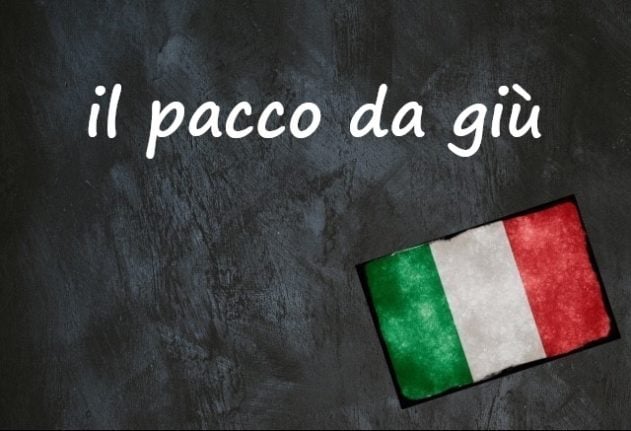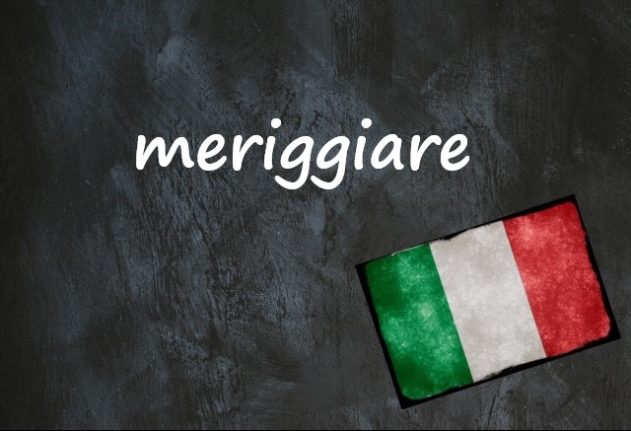Care packages are universal, but in Italy they tend to be sent in one direction only.
With so many Italians moving from their southern hometowns to the north of Italy to work or study, it’s far from unusual for them to shuttle back and forth by car, train, plane or bus on every holiday. And in some cases, even most weekends.
But what happens when you can’t make a trip home to see your family – and to stock up on much-needed supplies?
Wherever you’ve moved to, if you can’t get to southern Italy, southern Italy comes to you in the form of il pacco da giù.
Giù, a versatile word which can mean ‘down’, ‘downstairs’, ‘under’ or ‘below’, in this case means ‘down south’.
Sù means the opposite: ‘up’, ‘above’, ‘over’, ‘upstairs’.
In fact, so many southern Italians regularly send or receive a “parcel from down south” that the concept is known throughout the country, and couriers are well-practiced in delivering perishable goods from door to door in record time.
While such parcels in many countries would contain comfort foods and sugary treats, in Italy you can probably expect things to be markedly healthier.

As quite a few Italian families – particularly in the south – have at least a small garden or plot of land on which they grow their own vegetables, they’ll be concerned about their grown-up children not getting enough fresh produce in their diets while living elsewhere.
While living in Tuscany – hardly a place known to lack decent produce – I was amazed to find that my husband’s family in Puglia would regularly send large, insulated packages by overnight courier. They always weighed several kilos, and filled with fresh fruit, vegetables, and even eggs from their chickens, which usually arrived intact, to my further astonishment.
They’d even include things liked pasta, homemade biscotti, home-cured meats, and cheese from the village caseificio.
– Quante confezioni di biscotti devo mettere nel pacco?
– How many packets of biscuits should I put in the parcel?
While I initally thought my in-laws were just especially thoughtful and generous – and perhaps excessively concerned about our diet – I soon found out that couriering parcels of food to family members across the country is fairly common practise.
Italians living elsewhere in Europe will find their pacco da giù delivery even more essential – though the contents will need to have a slightly longer shelf life.
And if, like me, you’re spending Christmas in Italy away from your family in northern Europe, you may be lucky enough to receive something that’s far less common in Italy (and features far fewer fresh vegetables): un ‘pacco da sù’ (a parcel from up north).
Do you have an Italian word or expression you’d like us to feature? If so, please email us with your suggestion.



 Please whitelist us to continue reading.
Please whitelist us to continue reading.
Member comments